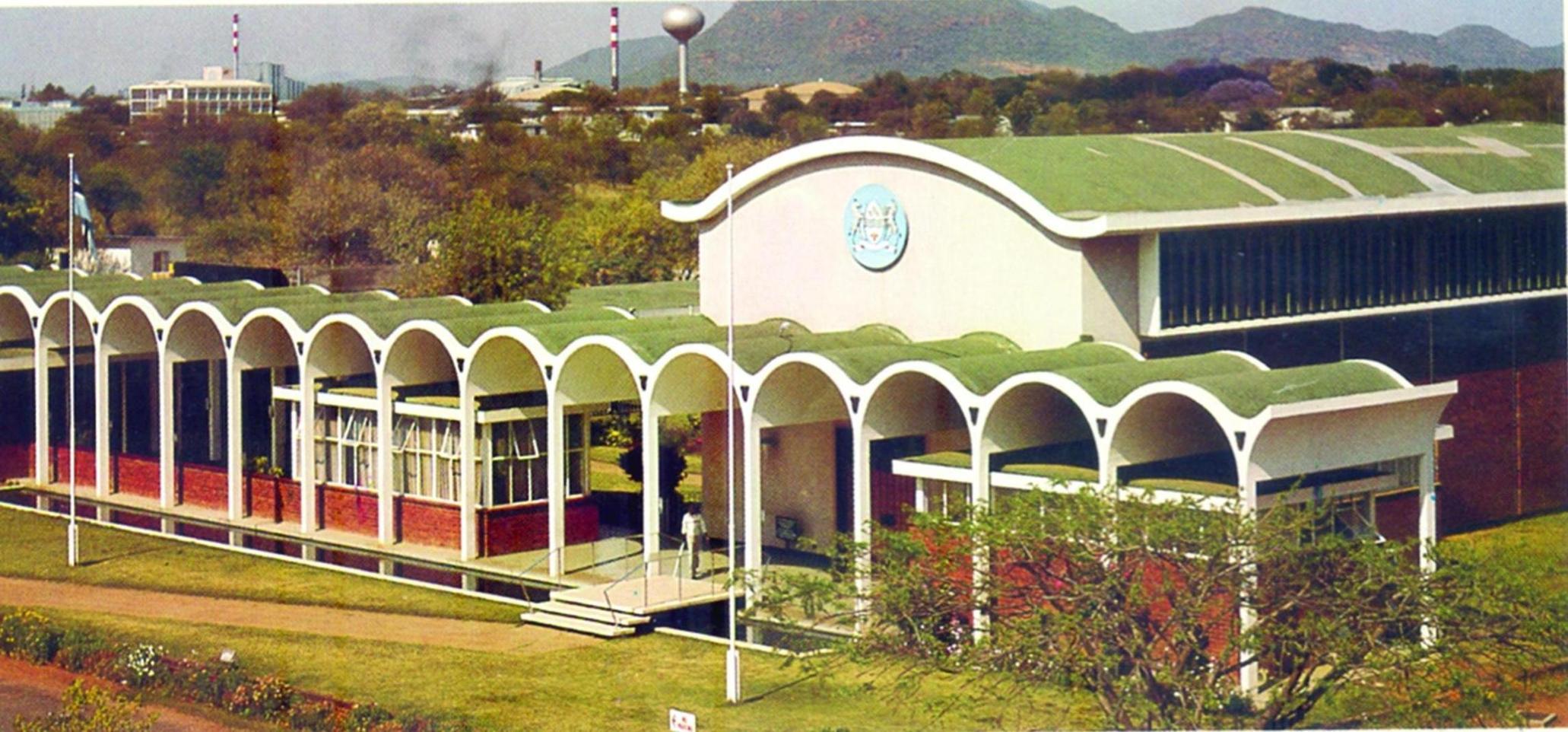Africa-Press – Botswana. Preliminary data for the 2024/2025 financial year shows that Southern African Customs Union (SACU) receipts have been the main revenue driver between November and June, amounting to P12.9 billion.
Answering a question in Parliament on Monday, the Minister of Finance, Mr Ndaba Gaolathe emphasised that the figures remained provisional, as some months have yet to be closed and reconciliation processes still underway.
According to the minister, other revenue sources such as Value Added Tax (VAT) and non-mineral income tax recorded slight increases during the review period, but not enough to offset a decline in mineral revenues.
“For example, VAT collections increased from P5.1 billion in 2019/2020 to P6.7 billion in 2020/2021, then to P7.5 billion in 2021/2022, before dropping to P6.3 billion in 2022/2023,” he said.
The minister said the decline was mainly due to a two-percentage-point reduction in the VAT rate to 12 per cent.
He said VAT collections rebounded to P7.3 billion following the reinstatement of the 14 per cent rate, and preliminary data for 2024/2025 suggested further growth to P8.9 billion.
Mr Gaolathe attributed this growth to increased sales of fast-moving consumer goods, supported by moderate inflationary pressures.
He noted that this trend aligned with the wholesale and retail sector’s average growth of 5.1 per cent between 2023 and 2024.
The minister said on non-mineral income tax, the minister reported figures of P8.1 billion in 2019/2020, P9.5 billion in 2020/2021, P14.7 billion in 2021/2022, and P10.1 billion in 2022/2023.
He noted that preliminary data for 2024/2025 suggested a decline to P8.5 billion, which he linked to government cash flow challenges impacting private sector businesses, especially those reliant on government contracts.
Mr Gaolathe stressed that all sectors contributed to revenue collection, although mining has traditionally been the largest contributor.
However, he noted that challenges in the mining sector since late 2023 had reduced revenues, with mineral royalties now accounting for just five per cent of total revenue.
“Government expenditure covers all spending by Ministries, Departments and Agencies (MDAs) on goods, works and services, including critical areas such as education, health, defence and social protection,” he explained.
He described government spending as a key component of Gross Domestic Product (GDP) and a tool for driving growth through policy decisions on budgeting, taxation, and infrastructure.
The minister also outlined the two main budget components: development expenditure, which funded long-term assets such as infrastructure and equipment, and recurrent expenditure, that covered day-to-day operational costs like salaries, utilities and maintenance.
Between November and June for each year from 2019/2020 to 2024/2025, he said total expenditure and net lending exceeded total revenue and grants.
For 2024/2025, Minister Gaolathe said expenditure stood at P52.7 billion, down from P58.2 billion in 2023/2024 and close to P49.3 billion in 2022/2023.
“This demonstrates deliberate restraint despite unavoidable obligations,” he said.
He acknowledged that the sharp downturn in global diamond demand since late 2023 had heavily impacted mineral revenues, a factor beyond government control.
He said government remained committed to protecting essential services, meeting its obligations and maintaining fiscal discipline.
Minister Gaolathe said revenue is collected through MDAs in cash, via electronic funds transfers (EFTs), and through the Botswana Interbank Settlement System (BISS) and was remitted to the Remittance Account at the Bank of Botswana.
He said key sources included mineral revenue (tax and royalties), SACU receipts, non-mineral income tax, VAT, transfer duties, motor vehicle licence fees and export duties.
Mr Gaolathe noted that mineral revenue and SACU receipts together accounted for 57 percent of total revenue, with mineral tax and royalties historically contributing an average of 30 per cent.
“These receipts are remitted to the Remittance Account at Bank of Botswana. Revenue sources include main revenue items such as mineral revenue, which comprises mineral tax and mineral royalties, Southern African Customs Union (SACU) receipts, non-mineral income tax and Value Added Tax (VAT), transfer duties, motor vehicle licence fees and export duties, among others,” he said.
Mr Gaolathe further noted that mineral revenue and SACU combined account for 57 per cent of total revenue adding that historically, mineral tax and royalties have been the main source of government revenue at 30 percent on average.
He indicated that total revenue and grants amounted to P28.8 billion for the period November to June in 2019/2020, adding that this was driven by SACU receipts and mineral revenue, at P7.4 billion and P6.1 billion, respectively.
“In the following year (2020/2021), total revenue and grants increased to P37.5 billion during the corresponding review period. The main drivers for this increase were mineral revenue at P11.3 billion and non-mineral income tax at P8.1 billion,” he said.
For the corresponding period in the 2021/2022 financial year, Mr Gaolathe shared that total revenue and grants stood at P47.9 billion.
“The largest contribution to this revenue profile was mineral revenue at P18.9 billion, followed by non-mineral income tax at P9.5 billion, while VAT revenue followed at P7.5 billion,” he said.
He further noted that in the 2022/2023 financial year, total revenue and grants amounted to about P49.8 billion, which consisted mainly of mineral revenue at P21.9 billion and non-mineral income tax at P10.1 billion.
The minister said in the following financial year (2023/2024), total revenue and grants declined to about P39.9 billion, mainly attributable to a significant decline in mineral revenue, which recorded P3.4 billion.
He indicated that the deterioration in the performance of mineral revenue reflected, to a larger extent, subdued demand for diamonds amid weak global demand.
Mr Gaolathe said other main revenue drivers such as SACU and non-mineral income tax performed in line with expectations, has recorded P12.8 billion and P14.7 billion, respectively.
Furthermore, he said government expenditure and net lending for the period November to June had consistently outpaced total revenue and grants over the past six financial years, from 2019/20 to 2024/25.
He indicated that in the current financial year, expenditure for the reporting period stood at P52.7 billion a decrease from P58.2 billion recorded in 2023/24, and close to the P49.3 billion spent in 2022/23.
According to Mr Gaolathe, this reduction reflected deliberate restraint, despite unavoidable commitments.
He said personal emoluments, pensions and development projects remained the main drivers of spending across all years under review. “
The Government Accounting and Budgeting System (GABS), an automated platform for managing government finances, has been instrumental in processing revenue receipts, supplier payments, public officials’ salaries and compiling national accounts since its introduction in 2004,” he said.
Mr Gaolathe reported that in August 2023, GABS began experiencing severe slowdowns, preventing the timely processing of key transactions, including postings to the General Ledger.
This, he said, hindered effective monitoring of budget execution and led to overspending by ministries, departments and agencies, despite earlier guidance on manual monitoring methods.
“By December 2024, system performance had stabilised, allowing pending transactions to be processed. These postings have since revealed overspending that could have been avoided had manual controls been fully implemented,” he said.
He further noted that spending pressures have been exacerbated by the late payment of prior-year invoices, which were delayed due to depleted budgets.
Minister Gaolathe said this has created a mismatch between revenue and expenditure in the reporting period.
The minister said as a result, line ministry expenditures have exceeded the revenues generated during the same periods, creating deficits.
These deficits in turn, Mr Gaolathe noted, spilled over into subsequent financial years as unpaid obligations were carried forward for settlement.
He was responding to a question from the MP for Thamaga/Kumakwane, Mr Palelo Motaosane, who had requested details on government revenue collected from November 2024 to June 2025.
Mr Motaosane had also wanted to know factors that led to the revenues, including government expenditure from November 2024.
Source: dailynews
For More News And Analysis About Botswana Follow Africa-Press






